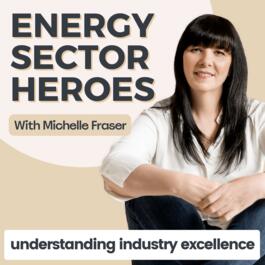
Contractor vs Operator: What Graduates Should Know First with John Armstrong | Energy Sector Heroes
In this episode, I sit down with John Armstrong, CEO of the British Pipeline Agency and guest lecturer at the University of Warwick. If you're a graduate engineer, early-career professional, or just trying to find your feet in the evolving world of energy, this conversation is packed with honest, real-world advice that bridges technical progression with personal growth. We talk about the unspoken parts of building a career in energy: the pressure to be visible, the quiet frustrations of being overlooked, and how to create momentum without being pushy. John shares stories from his own career—spanning power stations, international placements, and leadership roles—and reflects on the career patterns that shaped him (and nearly trapped him). 🎧 Why this matters: Many energy professionals—especially those starting out—face a tension between fitting in and standing out. John’s experience shows what happens when you navigate that with intention, timing, and just enough courage to ask for more. 💡 Three Takeaways You Can Act On: 🔹 Ask for variety before you get stuck. If you've mastered a task or role, don’t wait to be “tapped” for the next one. Proactively ask to shadow other teams, join new projects, or get exposure to different areas before you become known only for your current skill set. 🔹 Make your work visible—even when remote. Remote or in-office, visibility is a conscious act. Don’t assume people know what you’re doing. Look for opportunities to share updates, contribute to internal platforms, or simply reach out to senior staff with questions or results. 🔹 Use “side quests” to build your brand. Get involved in your professional institute, industry committees, or local events—not just for networking, but to test new skills and open doors that your day job doesn’t. These low-stakes spaces can turn into your next role before you realise it.
From "Energy Sector Heroes ~ Careers in Oil & Gas, Sustainability & Renewable Energy"


Comments
Add comment Feedback